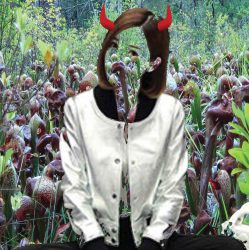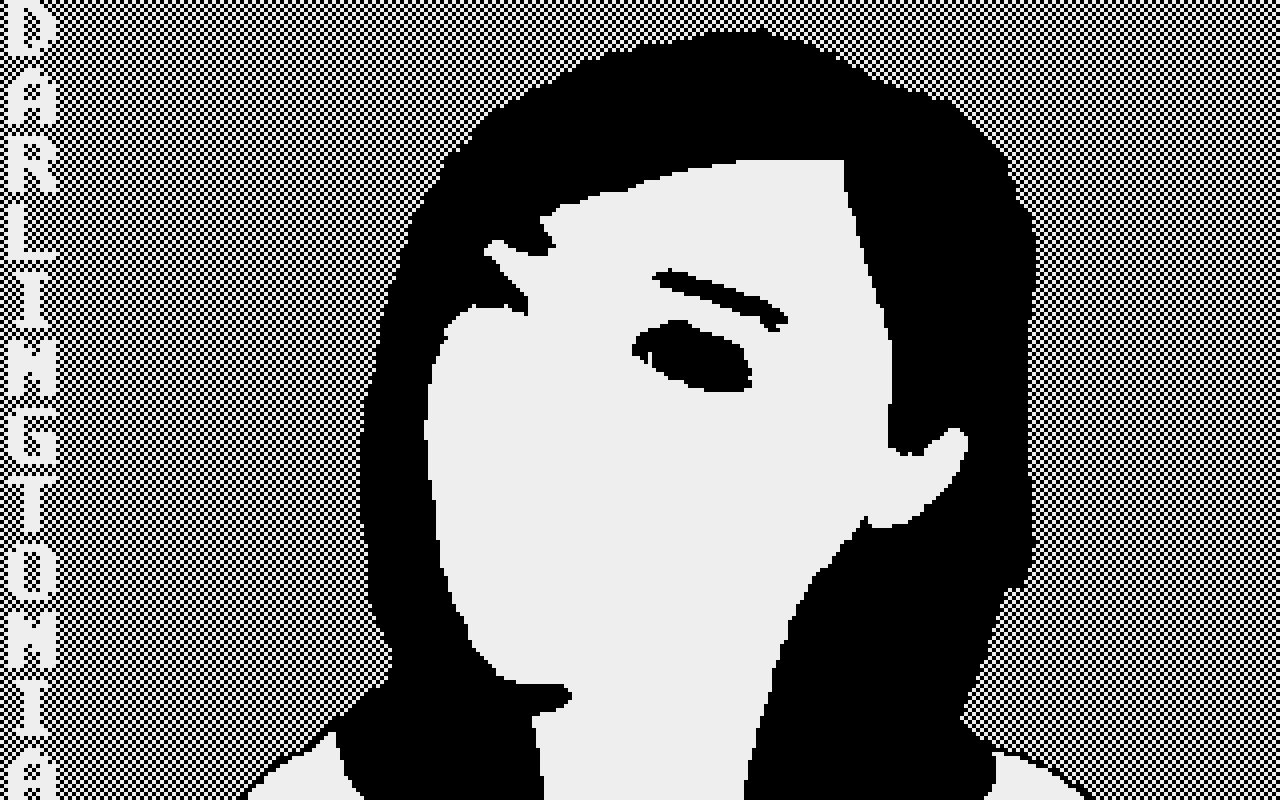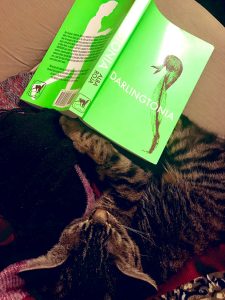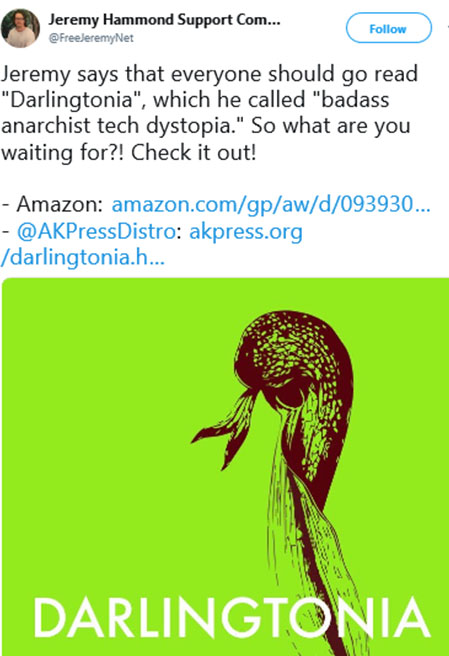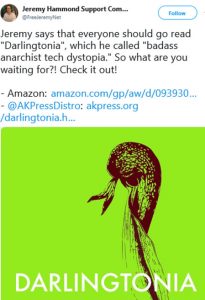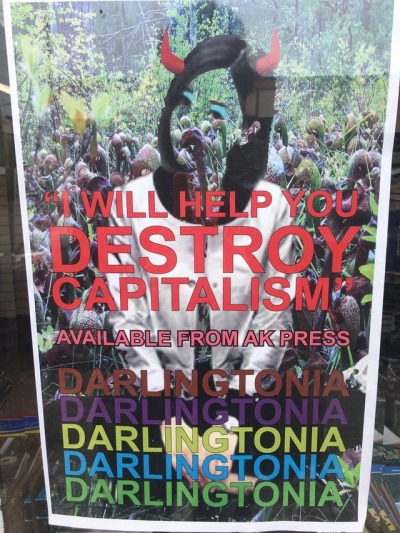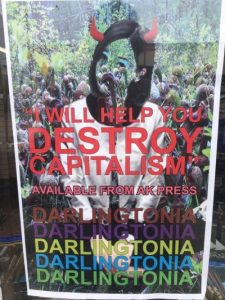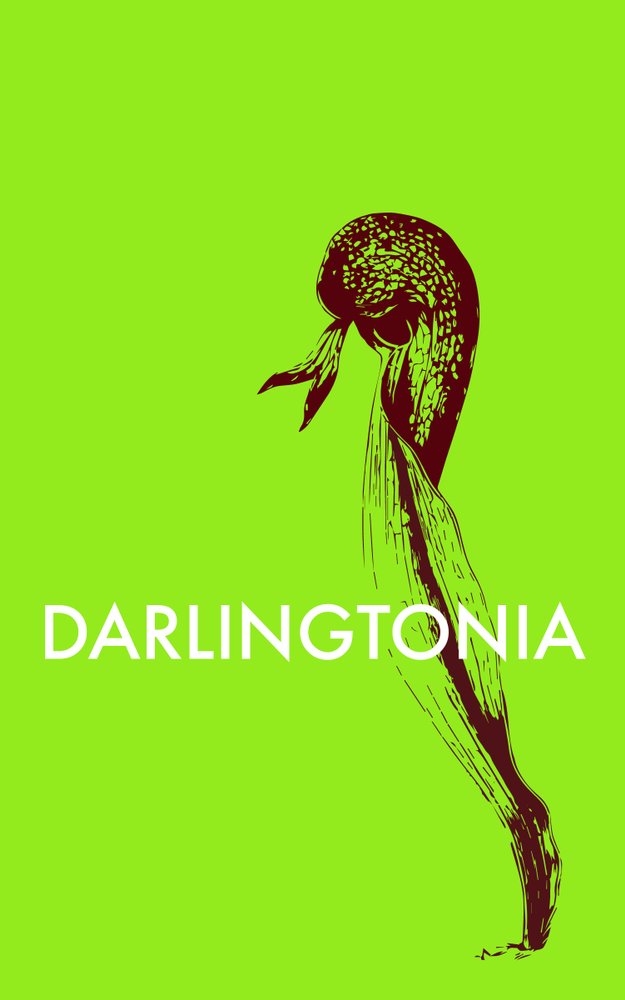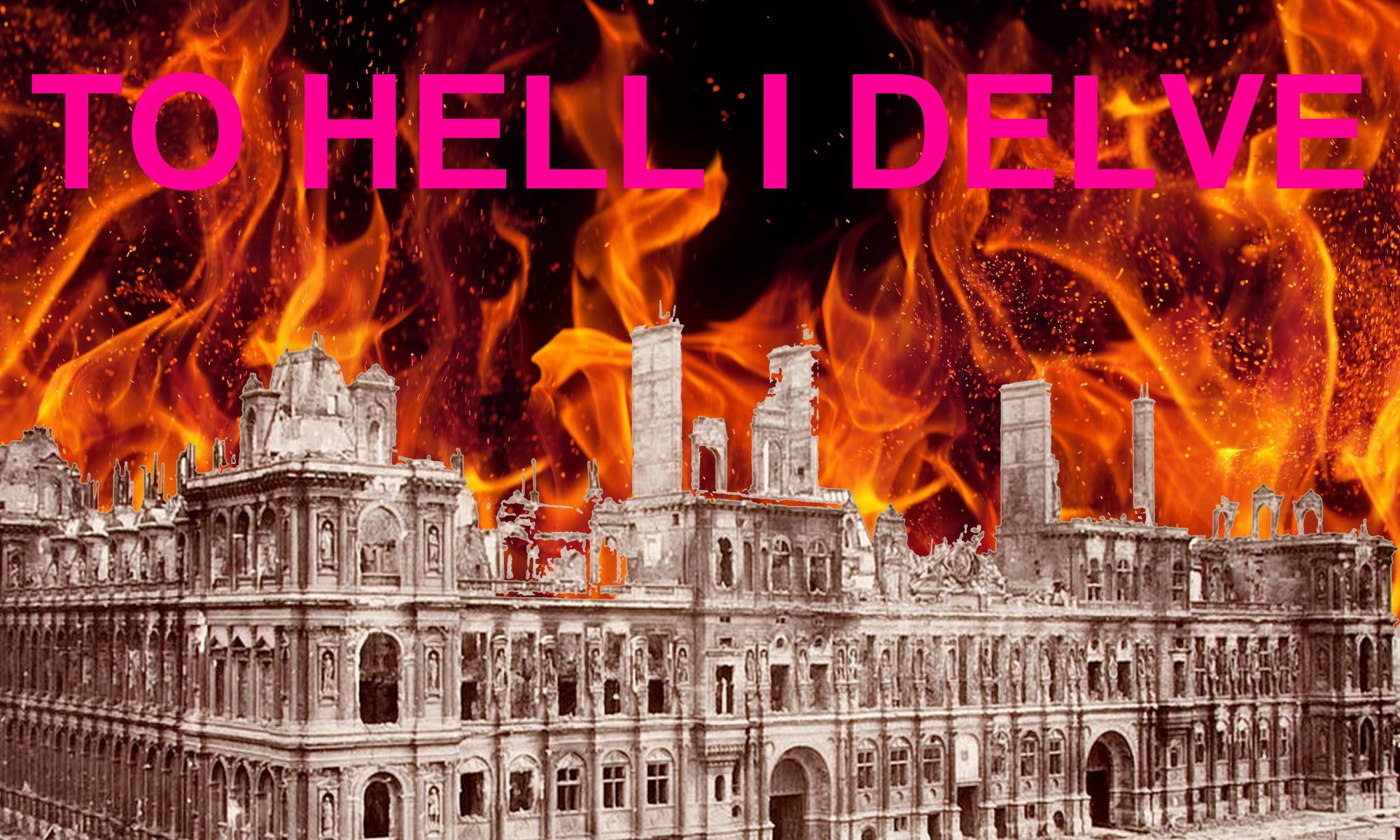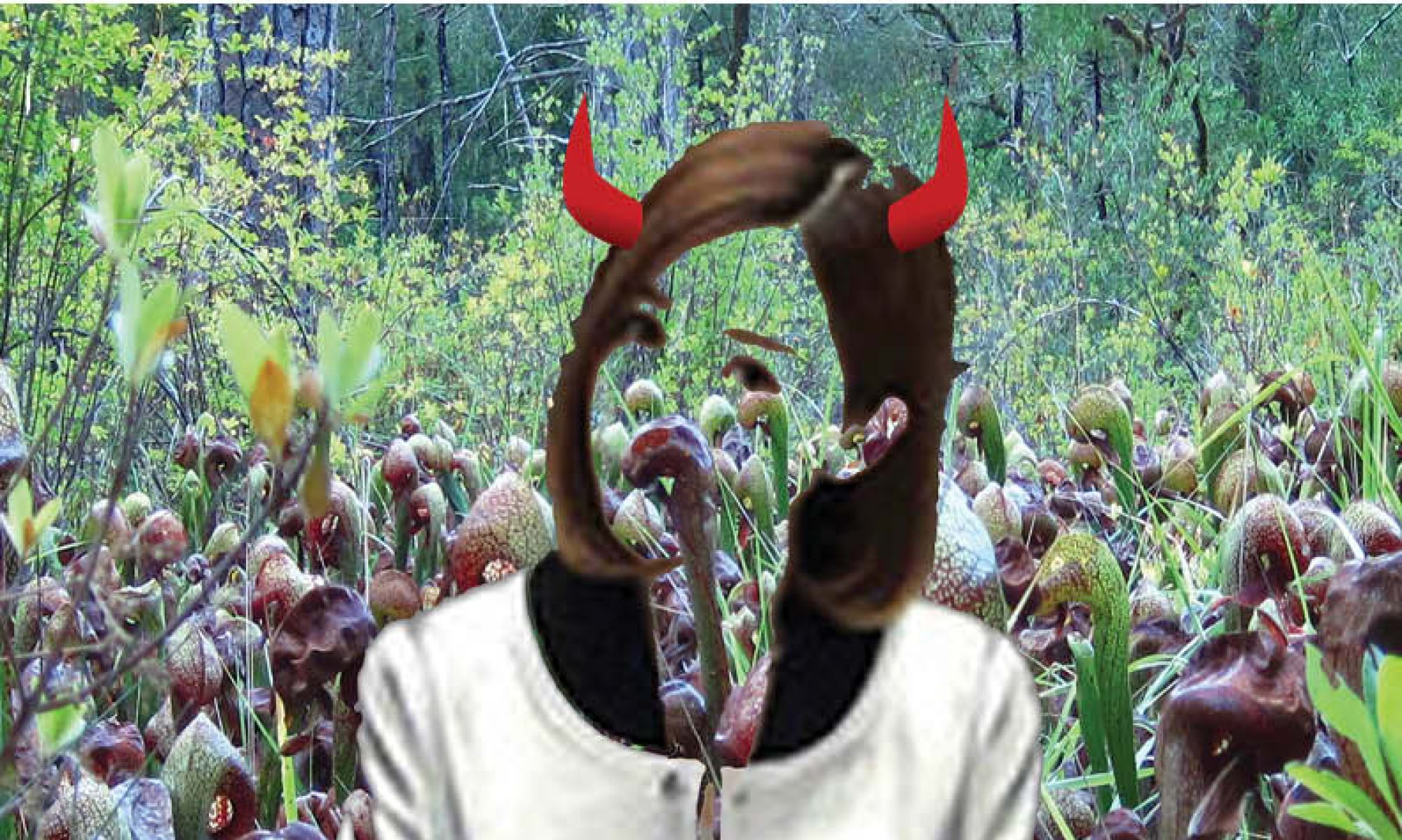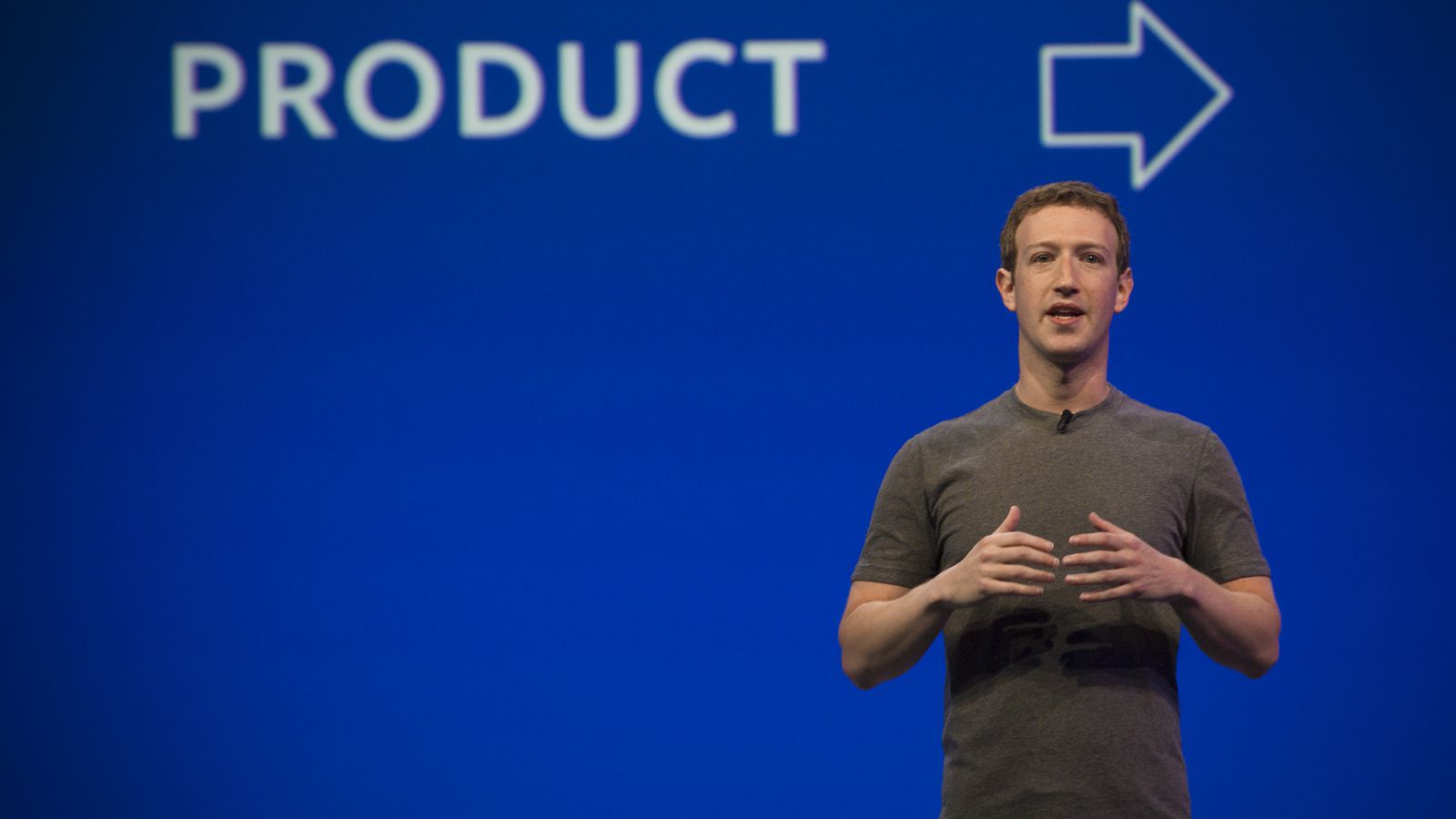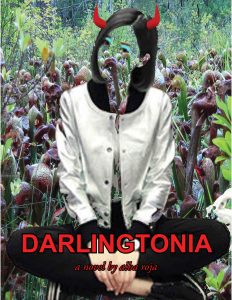
By RUHE (from The Fifth Estate)
Darlingtonia begins with a juxtaposition characteristic of the times we live in. Anton works in the service industry in Oakland, commuting each day into the city because he can’t afford to live there and providing concierge services for well-off hotel guests.
He gets through the day by smoking weed and scrolling through his smart phone. On the other side is Dylan, a millennial tech-worker who does graphic design for a multi-billion dollar tech company in San Francisco. She lives in a luxury condo, only occasionally drives her BMW, and commutes daily via chartered buses with other tech workers.
In the first few pages, author Alba Roja (actually, a West Coast writing collective) sets up a scenario that serves as a mirror image of the city’s contemporary tech economy. Dylan, the main character, works for OingoBoingo, a fictional company involved in shadowy internet programs which shape the core of the book’s action. Like so many people, Dylan moves through life in a repetitive cycle of commuting, working, going home alone to watch Netflix, and constantly checking social media accounts.
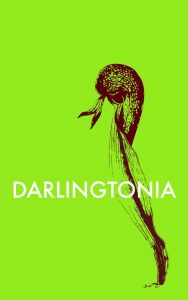
Hours of her life are wasted on internet platforms, largely observing the lives of others on Facebook and Instagram. She proudly identifies with “her” company, daily turning out new advertisements for its Childhood Memory Game that is played by 400 million users.
The ploy centers on Dylan and her process of becoming disillusioned which is accelerated when her co-worker and friend, Rick, is murdered. This sets off a chain of events in which Dylan first comes to realize the inequality of the world around her but also how the technology upon which the industry’s wealth is based is also a deep threat to everyone’s freedom. Her only clue is the blossoming of the Darlingtonia plant, a flower native to California that feeds off insects and uses nectar as bait.
While a predictable set-up for a novel, Dylan’s path is unique enough that it never seems stale. She begins to understand the picket signs of anarchist protesters who blockade the tech buses, she responds favorably to posters condemning “Techie Scum,” participates in a militant demonstration against her condo building, and even picks up a copy of Nanni Balestrini’s The Unseen from a radical bookstore. But what really pushes her over the edge is a leaked set of documents showing that OingoBoingo, Google, Facebook, and a handful of other tech companies are working with the government on secret program called GSX that uses data collected from social media platforms and smart phones to build a comprehensive behavior modification program.
The revelation is horrific, but at the same time entirely plausible, enough so that it triggers a widespread backlash with Dylan at the center. Following the disclosure, people turn away their screens and begin actually living.
You might not have time to notice the feminist quality of the novel’s characters given its breathless pace, but there is no male voice of consequence in it other than that of slain Ricky in flashbacks. Dylan falls in love with an edgy anarchist woman, and Ricky’s sisters save the day at the end. Other than their brother, all of the men are bad guys. The emptiness of fashion and beauty as a theme frequently appears.
In many ways, the book is reminiscent of Dave Egger’s 2013 novel The Circle which received mainstream buzz, eventually becoming a film, but didn’t spark any kind of broad anti-social network questioning. While Darlingtonia is unlikely to receive such widespread attention, it presents a much clearer and more direct critique in its unambiguous stance against the tech economy.
The optimism of Darlingtonia is refreshing a reader can almost feel this scenario happening at any moment as the book points out the fragility of the tech economy. It raises the possibility that at any moment people might decide to storm the condos of the rich in rebellion against the gross wealth disparities or that the tech economy is one leak away from becoming the subject of public outrage.
Of course, we saw how the Snowden leaks were largely subsumed into a debate over encryption. The recent Cambridge Analytica scandal and Facebook’s admission that most user data has been compromised, makes the scenario of a widespread anti-tech backlash like the one described in the book seem increasingly plausible.
Darlingtonia offers a highly readable critique of the technology and digital lives we are told we need to live. The book just might want to make you throw away your smart phone. The characters are well-written and the story is engaging, and succeeds at simply being a good story, avoiding the didactic tendency of much political fiction.
RUHE is an anarchist in the Midwest who likes to read in the woods while there are still some left.
Darlingtonia is available from Detritus Books: detritusbooks.bigcartel.com


